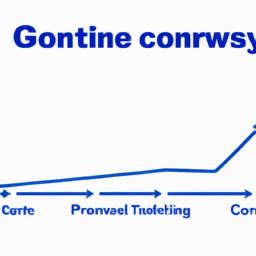Compound interest is a concept that has the potential to significantly boost your savings and investments. Unlike simple interest, which is based solely on the principal amount of a loan, compound interest takes into account both the principal and the accumulated interest. This means that as time goes by, you earn interest not only on your initial investment but also on the interest it has already generated.
Interest rates play a crucial role in compound interest calculations. When considering investments, smart investors go beyond the nominal or coupon rate of a bond or loan and assess whether it aligns with their financial goals. By carefully analyzing interest rates, investors can make informed decisions about where to allocate their funds.
To better understand the impact of compound interest, the "Rule of 72" comes into play. The rule approximates the number of years it will take for your money to double, given a fixed interest rate. The higher the interest rate, the faster your investment will grow. For example, if you have an interest rate of 6%, your investment will double in approximately 12 years (72/6).
The time value of money (TVM) is an essential concept closely related to compound interest. It states that a sum of money has greater value in the present than in the future due to its earnings potential. In other words, the money you have now has the potential to grow over time, making it more valuable than the same amount of money in the future.
Time truly is money when it comes to compound interest. The value of the money you have now is not the same as it will be years from now, and vice versa. By harnessing compound interest, you can make your money work for you and multiply your wealth over time.
Interest, in general, is the monetary charge for the privilege of borrowing money. It can be either an expense or a revenue depending on whether you are the borrower or the lender. Interest is typically expressed as a dollar amount, representing the cost of borrowing or the return on investment.
Future value (FV) is another term closely associated with compound interest. It represents the value of a current asset at a future date, assuming a certain rate of growth over time. By considering the future value, investors can make informed decisions about their investments and plan for their financial goals accordingly.
In contrast to compound interest, simple interest is an interest charge that borrowers pay lenders for a loan. It is calculated using only the principal amount without considering compounding. Simple interest is commonly used for shorter-term loans, where the impact of compounding is minimal.
Interest rates play a crucial role in both borrowing and saving. They represent the cost of borrowing money and the return on investment. Whether you are taking out a loan or looking for a savings account, understanding interest rates is essential to make informed financial decisions.
